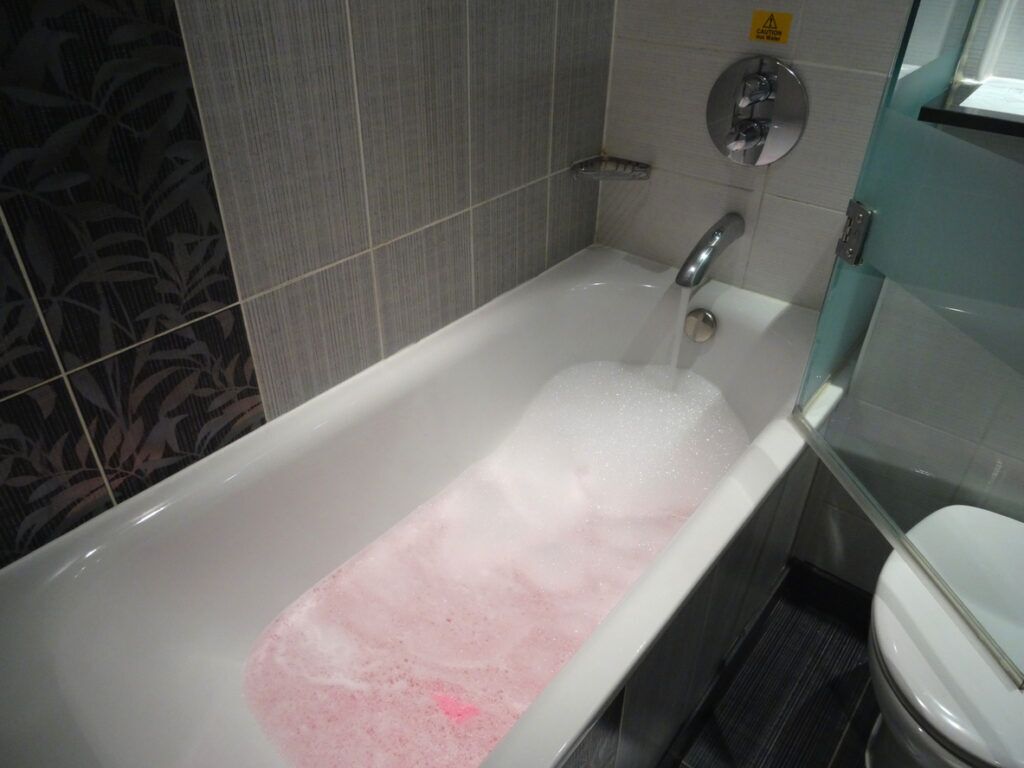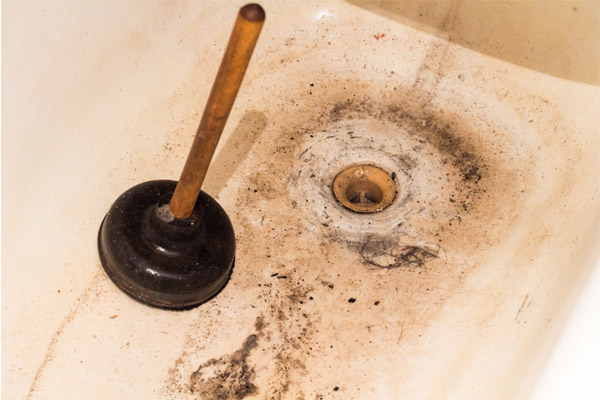Presented here down the page you will find some quality answers about What to Do if Sewage Starts Coming Up Through Your Bathtub.

Sewage back-up in the bath tub can be an upsetting and unsanitary problem for any type of property owner. Not only is it troublesome, but it additionally poses serious wellness risks and indicates underlying issues with the plumbing system. Understanding why sewer is coming up through the bath tub is vital for taking suitable activity to deal with the issue efficiently.
Introduction to the Issue
Recognizing the Trouble
When sewage starts backing up into the bathtub, it's a clear indication of a problem with the drainage system. The wastewater that must be moving far from your home is instead discovering its way back right into your space, which can bring about significant damages and health hazards.
Prospective Causes
A number of factors can add to sewage back-up in the tub. From blockages in the sewer line to issues with the plumbing facilities, identifying the source is crucial for finding a remedy.
Common Reasons for Sewer Backup
Obstructions in the Sewage System Line
One of one of the most usual reasons for sewer back-up is an obstruction in the sewage system line. This can happen because of the buildup of debris, grease, or international objects in the pipes, avoiding correct circulation and causing sewer to support into your bath tub.
Tree Origin Breach
Tree roots seeking wetness and nutrients can infiltrate drain lines with little splits or joints. With time, these origins can expand and broaden, causing significant damages to the pipelines and causing sewer backup issues.
Aging Framework
Older homes might have dated plumbing systems that are more vulnerable to deterioration, cracks, and wear and tear. As pipelines age, they come to be more susceptible to leaks and clogs, increasing the chance of sewer backup events.
Heavy Rainfall or Flooding
Throughout periods of heavy rainfall or flooding, the sewer system may end up being overloaded with excess water, triggering back-ups and overflows. This can lead to sewage supporting right into tubs and various other fixtures inside the home.
Health And Wellness Risks Associated with Sewage Backup
Contamination of Water
Sewer back-up can contaminate the water supply in your home, posing a significant wellness threat to you and your household. Exposure to polluted water can cause gastrointestinal concerns, skin infections, and various other illnesses.
Spread of Illness
Sewage includes harmful germs, infections, and parasites that can create a series of diseases, including hepatitis, cholera, and gastroenteritis. Entering contact with sewer or infected surface areas puts you in danger of infection.
Mold and mildew Growth
Moisture from sewage back-up can create optimal conditions for mold development in your house. Mold and mildew spores can aggravate respiratory system issues and trigger allergies in delicate people, making punctual clean-up essential.
Signs of Sewer Back-up
Foul Odors
Unpleasant odors rising from drains or components, particularly in the shower room, might indicate sewer back-up problems. These smells are typically solid and persistent, signaling a problem that needs immediate interest.
Slow Draining Fixtures
Bath tubs, sinks, and bathrooms that drain slowly or otherwise in all could be experiencing sewer back-up. If several fixtures are affected simultaneously, it's likely that the problem stems from a typical factor, such as the primary drain line.
Gurgling Noises
Strange gurgling or gurgling sounds coming from drains pipes when water is running elsewhere in your home are a sign of air caught in the plumbing system. This air buildup can arise from sewage backup and should be checked out immediately.
Immediate Actions to Take
Shutting Off Water
In case of sewer back-up, it's vital to shut off the water system to stop additional contamination and damages. Locate the major water shutoff valve in your house and shut it off up until the issue can be solved.
Calling a Specialist Plumber
Handling sewage back-up is not a DIY task. Call a qualified plumber with experience in taking care of sewage-related concerns to examine the situation and perform needed repair work or cleanups.
Avoiding Contact with Infected Water
Until the sewage backup is fixed, avoid contact with polluted water to avoid the spread of microorganisms and virus. Put on protective equipment if you need to remain in the affected location and clean your hands completely later.
Preventive Measures
Routine Maintenance of Sewer Lines
Set up regular examinations and upkeep of your sewer lines to identify and resolve possible problems prior to they rise right into major troubles. This can include cleaning out particles, inspecting for tree origin breach, and fixing any type of damaged pipelines.
Mounting Bayou Valves
Take into consideration installing bayou shutoffs in your plumbing system to stop sewer from receding into your home during periods of heavy rainfall or flooding. These valves instantly close when water starts backing up, securing your property from contamination.
Correct Disposal of Family Waste
Stay clear of flushing anything other than bathroom tissue and human waste down the toilet to avoid clogs and obstructions in the sewer line. Dispose of grease, oil, and various other family chemicals properly to minimize the risk of plumbing troubles.
Cleaning Up After Sewer Back-up
Sanitation Procedures
Completely sanitize and disinfect impacted areas after sewer back-up to get rid of harmful germs and protect against mold and mildew development. Usage ideal cleansing products and safety gear to make certain risk-free and effective cleaning.
Restoration of Impacted Locations
Repair any type of damages to floor covering, walls, or components caused by sewage backup. Relying on the level of the damage, you might require to replace carpeting, drywall, or various other materials to restore your read more home to its pre-loss problem.
Why is There Sewage Coming Up Through the Bathtub
Sewage in your bathtub is a major problem that can make you want to abandon the bathroom for good. You don’t have to. However, it is important to identify the source of the issue and take the necessary steps to resolve it in order to avoid any health risks and property damage. In this article, we will discuss what could be causing sewage to back up through your bathtub so you can take action quickly and effectively.
The Main Reason For Sewage Backup in The Bathtub
All the sinks and toilets in your home connect to different pipes that lead to the main sewer line. The sewer line then connects to the municipal sewer system. This connection works seamlessly on a daily basis, but there can sometimes be a problem with the main sewer line.
The most common cause of sewage backup is a clogged or blocked main sewer line. The main sewer line can be clogged due to the accumulation of debris, tree roots or grease buildup, or other materials. Another possible cause is a collapsed pipe. When this happens, your toilets and sinks won’t be able to drain properly. This is when sewage starts backing up through the bathtub. If the problem has been occurring for some time now, it might be time to consult with a plumber as there may be more severe damage that needs fixing.
How Can You Tell if it’s Coming From Your Sewer Line?
If you’re experiencing a sewage backup in your bathtub, then you can use a few simple methods to determine if it is coming from the main sewer line. First, try to unclog the tub drain with a plunger or an auger and see if that helps. If not, then inspect all of the drains in your house and check if there is any blockage in them. If some of the other drains are not working fine, then it’s likely the problem is with your main sewer line.
Common Signs of a Clogged Main Sewer Line
If you suspect that your main sewer line is blocked, then there are a few common signs to look out for. Frequent clogs in your home are a sure sign of a clogged sewer line. You can also check for slow drainage from all the plumbing fixtures.
Slow Drains
If you notice that it takes longer for your sinks and toilets to drain, then this could be a sign of a clogged main sewer line.
Frequent Clogs
Another common sign is that your drains or toilets become clogged almost all of the time. If this happens, then it could be a sign that the main sewer line is blocked.
Water Backup
Do you notice water or sewage coming back up from any of the drains in your home? If your answer is yes, you may have a clogged main sewer line.
Sinkholes
If you’ve noticed sinkholes in your yard or overflowing sewage from the ground, you may be facing a blocked sewer line issue.
Your Shower or Sink Makes Gurgling Noises
Have you noticed gurgling noises coming from your sink or shower lately? These are typically signs of a blocked sewer line and should be checked out immediately.
How to Prevent a Main Sewer Line Clog
Once you’ve identified that your main sewer line is clogged, it’s important to take steps to prevent it from happening again. The best way to do this is to avoid putting any solid material that can clog the drain, such as grease and other debris. You should also be mindful of what you flush down your toilet. In addition, you should schedule regular maintenance for your main sewer line. This will help keep it clear and free from clogs or backups.
What Should You do if You Notice Sewage Backing up Through The Bathtub?
If you’ve noticed sewage backing up through the bathtub, then it is important to call a professional plumber immediately. A plumber can inspect the situation and determine what the cause is, such as a blocked main sewer line. They will also be able to advise you on how best to fix the issue. In some cases, a simple drain cleaning may be all that is needed.
However, if the blockage is severe, then your plumber may need to use more advanced methods to clear the blockage.
No matter what, it is important to always call a professional plumber if you experience any kind of sewage backup. They will be able to assess the situation and provide you with a solution that is best for your home.
https://baylorinc.com/blog/why-is-there-sewage-coming-up-through-the-bathtub/

We were made aware of that editorial on What To Do If Sewage Starts Backing Up Into the Shower from a buddy on our other web blog. So long as you liked our blog post plz make sure you remember to pass it around. Thanks a lot for going through it.
Check Us Out
Comments on “Scrutinizing the Phenomenon of Discharge Rising Through the Bathtub”